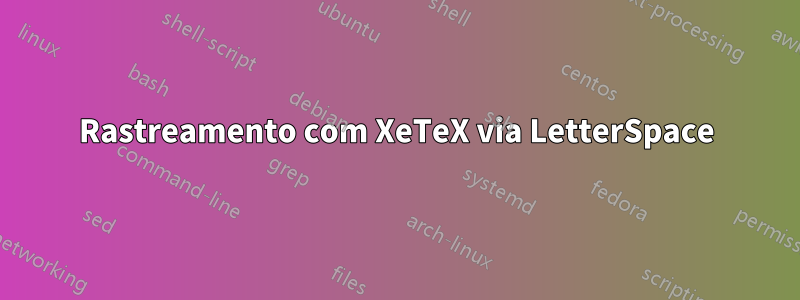
Quando uso o PDFLaTeX, tenho uma configuração usandomicrotypee uma fonte disponível em versalete (por exemplo, \usepackage{lmodern}),
\usepackage[
protrusion=true,
expansion=true,
kerning=true,
spacing=true,
tracking=true,
factor=1100,
stretch=40,
shrink=10
]{microtype}
\SetTracking{encoding={*}, family= *, shape=fsc}{16}
Eu gostaria da mesma configuração para o XeLaTeX (tanto quanto possível). Eu sei que o XeLaTeX só permite protusão com microtipo, mas tenho muitos \rmfamily\bfseries\scshapeem meus comandos (para seções e assim por diante) e quero habilitar o rastreamento globalmente, assim como o microtipo faz com o PDFLaTeX. Eu sei que posso LetterSpacefazer isso localmente, mas existe uma maneira de fazer isso de uma vez por todas?
Responder1
Este é o esquema do Linux Libertine:
\documentclass{article}
\usepackage{fontspec}
\setmainfont[
Ligatures=TeX,
UprightFeatures={
SmallCapsFont={Linux Libertine O},
SmallCapsFeatures={Letters=SmallCaps,LetterSpace=50},
},
BoldFeatures={
SmallCapsFont={LinLibertineOB},
SmallCapsFeatures={Letters=SmallCaps,LetterSpace=50},
},
ItalicFeatures={
SmallCapsFont={LinLibertineOI},
SmallCapsFeatures={Letters=SmallCaps,LetterSpace=50},
},
BoldItalicFeatures={
SmallCapsFont={LinLibertineOBI},
SmallCapsFeatures={Letters=SmallCaps,LetterSpace=50},
},
]{Linux Libertine O}
\begin{document}
This is text and \textsc{This is in Small Caps}
Don't use the following combinations, please:
{\scshape\bfseries This is Bold Small Caps}
{\scshape\itshape This is Italic Small Caps}
{\scshape\bfseries\itshape This is Bold Italic Small Caps}
\end{document}
Adapte-se ao seu ambiente. O rastreamento está definido para 50, o que certamente é demais, apenas para mostrar claramente o efeito.



